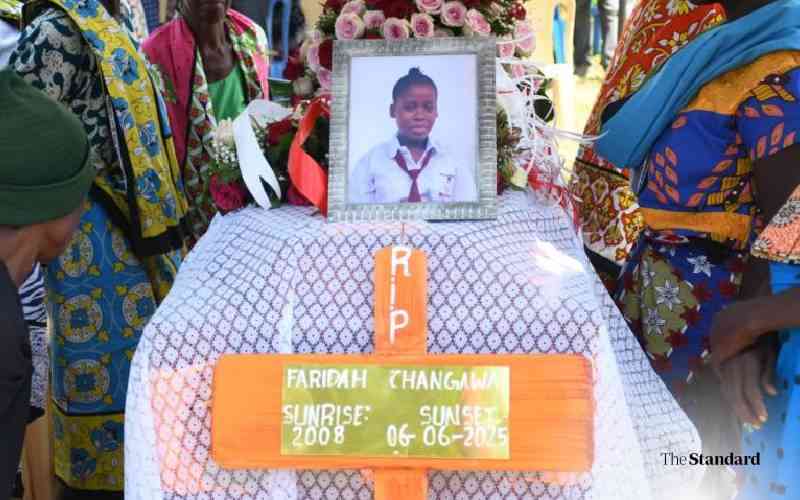
A 17-year-old girl who was allegedly stabbed to death by her boyfriend was laid to rest in the Madina area of Kilifi amid calls for a concerted effort to combat gender-based violence (GBV).
Faridah Kadzo, a Form Two student at Ng'ombeni Secondary, was killed two weeks ago.
Kadzo was called by her boyfriend at 8 PM, and they spoke for about an hour before he left. Later, the deceased went to the shop to pick up the phone when she was stabbed in the neck.
She rushed home with the knife lodged in her neck, bleeding profusely, before she collapsed and died. She told the family that it was her boyfriend who stabbed her.
The said boyfriend, Lewis Charo, was arrested two days after the murder incident and was presented before Kilifi Law Court. He remains in custody as police continue with investigations.
The said 21-year-old boyfriend worked as a palm wine tapper in the homestead. Kazdo's death was particularly painful for the parents as she was recovering from rape.
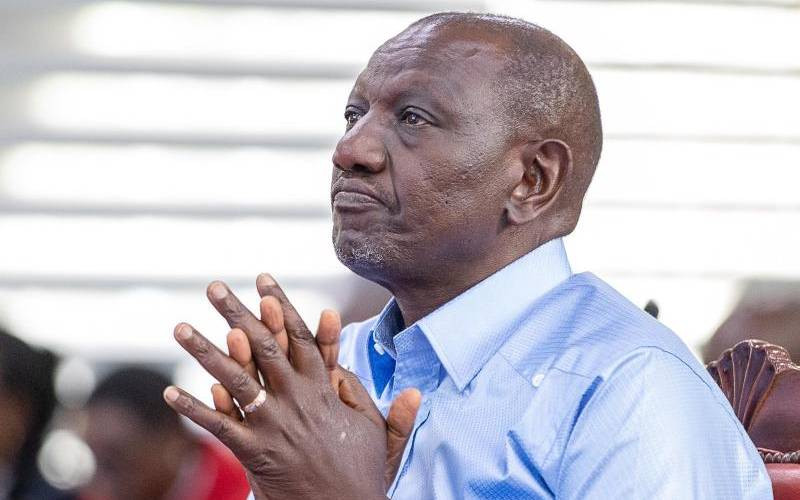
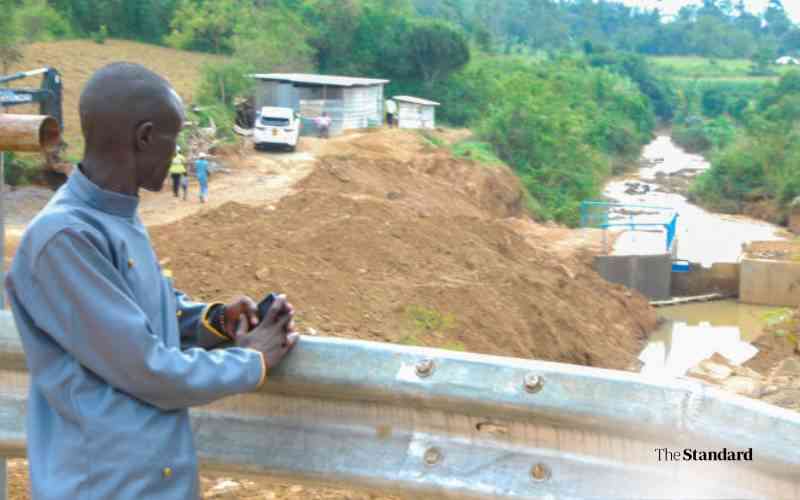
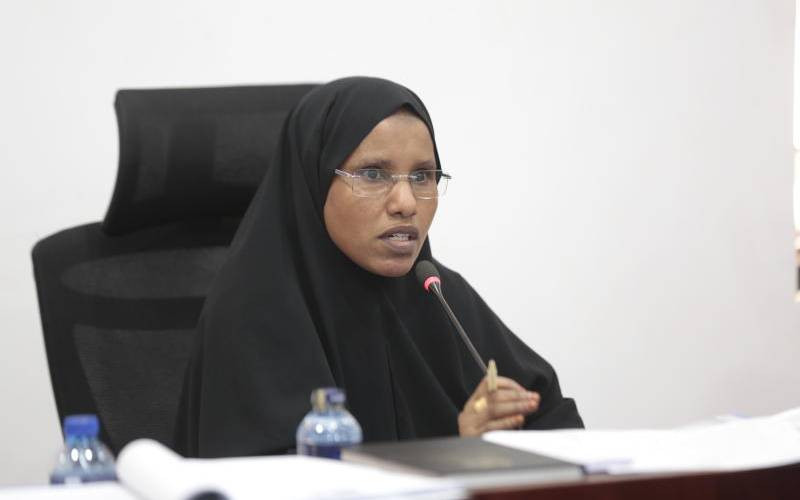
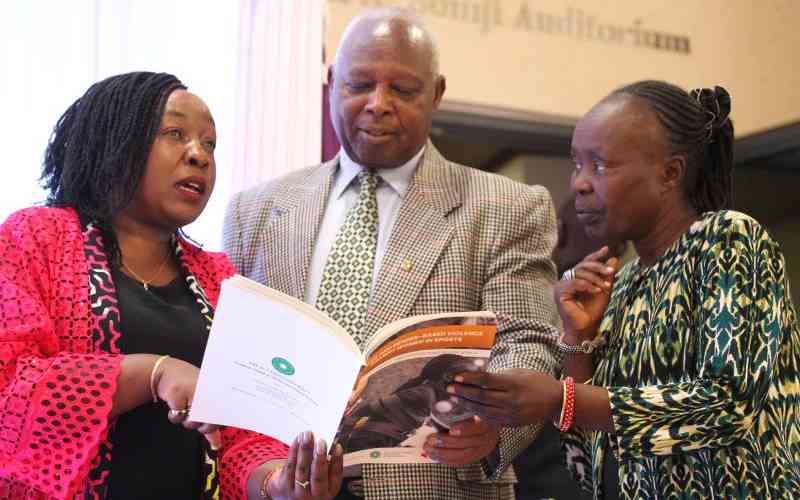
The family, represented by the victim’s aunt, Rose Wambua, said Kadzo was defiled by an unknown person in 2021, and she was receiving support through the justice system.
Her father, Julius Kalume, couldn't attend her daughter's burial as he was critically ill, while the mother, Mary Mlongo, was too distraught to speak.
Speakers at the burial piled pressure on police and the judiciary to ensure the family gets justice.
Wambua demanded justice for their daughter, whom she eulogised as a cheerful girl who loved people and always avoided conflict.
The International Justice Mission [IJM] described Faridah – also a defilement survivor – as a young woman full of life, with dreams, laughter and courage that defied the odds.
IJM Country Director Vincent Chahale asked the government to prioritise and expedite cases of gender-based violence (GBV) and femicide to ensure survivors get timely justice.
Chahale said that the slow pace during investigations and prosecutions leaves many victims without redress.
“She was a survivor of injustice, violence and a system that too often fails to protect the most vulnerable. And yet she stood strong. She sought justice not just for herself but for every girl who has been silenced, every child who has been hurt and every woman who has been told to endure,” he said.
Kadzo died because of “a culture that excuses violence, a system that delays justice and a society that too often turns its back on survivors”.
Stay informed. Subscribe to our newsletter
"The prolonged legal process in many cases creates room for perpetrators to walk free, leaving the victims traumatised in the society," said Chahale.
He said the fight against GBV requires multi-sectorial and cross-cutting approaches, including law enforcement, healthcare providers, the community and civil society organisations.
"It is not an issue for any single entity. It's societal. We need to dedicate concerted time and efforts towards the escalating and pressing matter," said Chahale.
IJM Coast region manager Aggrey Juma urged the public to stand in solidarity with survivors by demanding accountability.
He referred to the case of the minor as a reminder of the persistent and deadly threat of violence against women and girls in the country and particularly vulnerable communities.
"This case should sound as a wake-up call because her story reflects the reality of torture many women and girls face," said Juma.
Catherine Anzazi, Maveuni village elder, on her part urged the government to review existing GBV laws so as to ensure they are robust enough to prevent the menace and hold perpetrators accountable.
She also appealed for swift and severe punishment for those responsible for GBV and femicide cases.